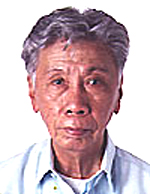Who's Who in Print Journalism
Juan L. Mercado
 He started his journalistic career as a reporter for one of the community papers in Cebu. He then joined the staff of Evening News, serving first as a Senate reporter, then later as associate editor. Mercado was the first director of the Philippine Press Institute (1965-1972). He instituted PPI's first training programs as well as hands-on courses that helped facilitate coverage of sensitive beats like street demonstrations, the stock exchanges, the police and military.
He started his journalistic career as a reporter for one of the community papers in Cebu. He then joined the staff of Evening News, serving first as a Senate reporter, then later as associate editor. Mercado was the first director of the Philippine Press Institute (1965-1972). He instituted PPI's first training programs as well as hands-on courses that helped facilitate coverage of sensitive beats like street demonstrations, the stock exchanges, the police and military.
He continued writing exposes on graft and corruption in government using the Philippine News Service as outlet, while still PPI director. Among the more notable stories he wrote were: the plight of sacada workers in Visayan sugar fields; customs corruption and widespread leakage of questions in a (nationwide) civil service examination for professionals.
He joined the Press Foundation of Asia as its Joint Chief Executive and started (DEPTHnews), an experiment in developmental journalism. He worked as editorial director of the service.
Mercado also served as correspondent for the Financial Times of London; the Honolulu Star Bulletin as well as The Bulletin of Sydney in Australia.
He was among the 22 journalists detained in the first wave of arrests by the martial law regime. Upon his release, he became communication officer for the Food and Agriculture Organization of the United Nations in Bangkok, Thailand. Thereafter, he was posted in FAO Headquarters in Rome, Italy as Attache d' Cabinet.
Juan L. Mercado graduated from the University of San Carlos, Cebu City. He also took special courses at the American Press Institute in Columbia University in 1964 and at Henry Kissinger's foreign policy seminar at Harvard University.
He was named Journalist of the Year by Manila Rotary Club and received an Outstanding Alumnus Award at the University of San Carlos in 1970.
Source: Press Club Golden Jubilarians (thesis prepared by students of Miriam College) with revisions by. J.L. Mercado